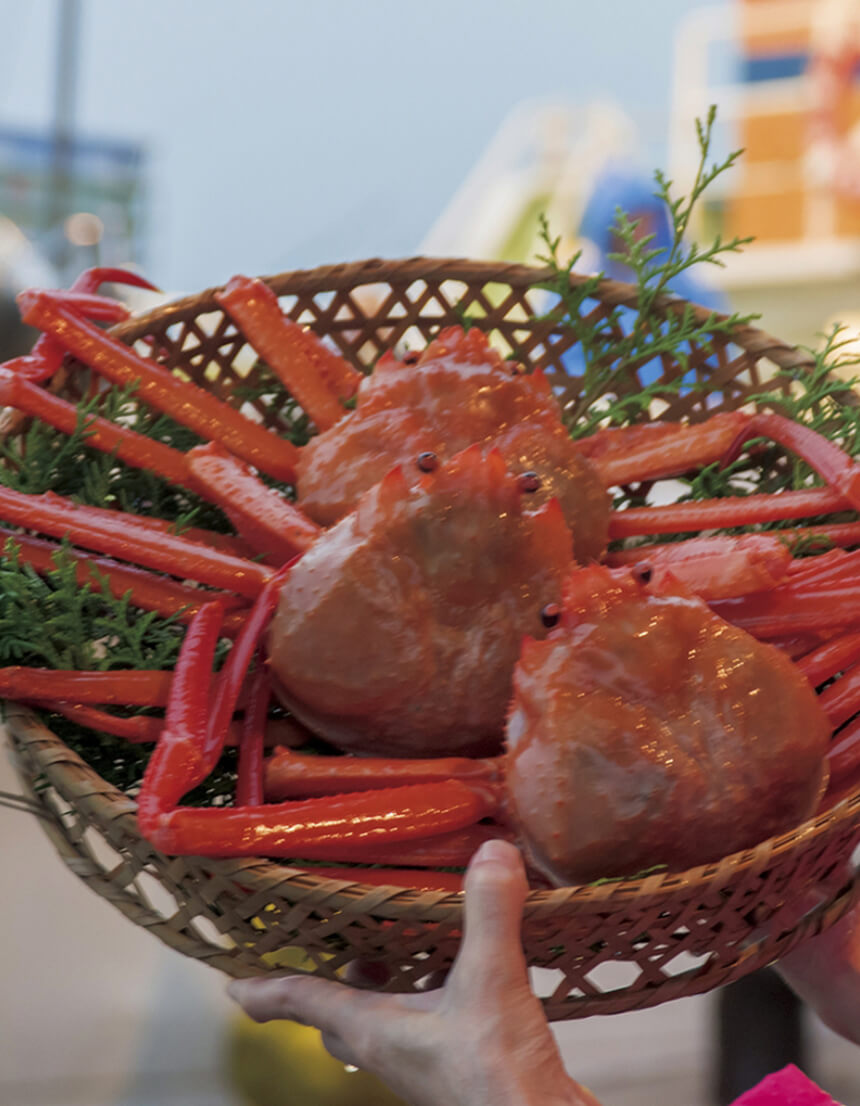

Upon landing at Sakaiminato, the nearest port to the fishing grounds, the fish are promptly processed and shipped without intermediaries. This streamlined process allows us to deliver the crabs to you in a fresh state without the need for freezing.

We can also accommodate requests for processing freshly caught crabs in a live state, such as for Ganjang Gejang or Okizuke preparations.

If you have a flag or jacket featuring your store's or company's logo, we are happy to capture photos and videos onboard our ships. This provides an opportunity for personalized branding.


This traditional fishing method involves submerging a basket filled with bait to the sea floor to attract crabs. In contrast to conventional seine fishing, this approach minimizes the likelihood of crab injuries and eliminates stress. Furthermore, the process makes it challenging for impurities like sand to be introduced during fishing, ensuring the enjoyment of delicious crab miso.

To mitigate overfishing, regulations have been implemented, specifying that male crabs can only be caught if they have a shell width of 9 cm or more, as outlined in ministerial ordinances. In sustained fisheries, we employ cages featuring a mesh size of 13 cm or more, accompanied by three escape rings. This design allows crabs and fish smaller than 9 cm, which are not the intended targets for fishing, to easily escape, contributing to the preservation of the ecosystem.

The menace of ghost fishing, triggered by the disposal of fishing gear like nets and fishing lines by illicit vessels and trawlers, poses a significant threat to marine ecosystems. To safeguard robust fishing grounds and marine resources, Tsunatori Fisheries engages in garbage collection during the fishing season. This undertaking has resonated with fellow fishermen, and gradually, positive outcomes are becoming apparent.

Crabs undergo a migration from shallow to deep waters as they mature. While snow crabs are typically caught at depths ranging from 150m to 250m, Rentori Suisan adopts a unique approach by fishing at depths of 400m to 500m. This targeted depth ensures the capture of only large, mature crabs. This strategic depth selection helps prevent the overexploitation of crab resources, maintaining a sustainable approach while delivering high-quality consecutive crabs.